The content of the article
A modern person tries to devote less and less time to household chores, therefore he is in search of simple solutions. Such cases include washing dishes, which can take a long time without a special car if a large feast has passed. What to do when you have to wash not a couple of plates and spoons, but a full table of dishes? In such cases, you will need simple tips, they will save time, effort and water costs.
How to optimize the process of washing dishes
- Take the habit of washing dishes immediately. You should not wait for the moment when all the food will dry on the plate, because it will be difficult to scrape it. Of course, it sometimes seems difficult to wash a plate or mug behind you. This situation is observed if there is already a mountain of dishes in the sink and no one from the household wants to wash it.Agree with all members of the family that henceforth the dishes are washed each after themselves.
- If you have completely lost the desire to wash the dishes immediately, soak it in a basin or sink with water and detergent. After such actions, you will be sure that the food will not stick to the plate. You just need to wipe it with a sponge with detergent, rinse and dry.
- Use good sponges for washing, discard the old-fashioned “cloth” method. Foam rubber will save you not only time to wash dishes, but also a tool, as well as water. Do not wait for the sponge to absorb fat and become useless. Change them regularly. Buy an aluminum woven sponge to remove sticking dirt. They quickly remove foam rubber dried food.
- After the meal, it is not necessary to put one plate into another, especially if you are not going to wash the dishes right away. This option is suitable for those who will soak plates with water and detergent. But in all other cases, the food will stick to the bottom of the dish, it will be more difficult to wash it.
- No need to spare the detergent, it is specifically designed for thorough washing dishes from grease and food residue.Pour more gel on the sponge, then foam it and start washing.
- To optimize the washing process, take the habit of pre-sorting dirty dishes. Forks separately, spoons separately, knives, plates, mugs separately. Wash dishes in batches, practice has shown that it saves much more time.
- So that water does not flow constantly into the sink while you wash the dishes. Turn off the taps. First, rub each plate (pan, fork, pan, etc.) with a detergent, set aside, then rinse.
- Never stop there. Learn to wash dishes in a short time and with less water (if the goal is to save family resources). For example, today you washed the “mountain” of dishes for 10 minutes, tomorrow you need to perform the same actions for 7 without losing quality. Constantly improve your skills to make it more interesting!
Proper washing up
After becoming familiar with ways to optimize dish washing, learn the basic steps of this process.
Step number 1. Soak
Fold spoons, forks, knives, and other small items in the basin.In the second container, send plates with mugs, another large dish.
Fill with hot water and add detergent. Leave the cutlery for 15-20 minutes to soak. If there are too many dishes, soak it in batches.
If you do not have a basin for such manipulations, use a sink. Close it with a stopper, take hot water and add detergent. Leave the dishes soaked for a specified time.
Step number 2. Washing dishes
When soaking in a separate basin or container, perform the following manipulations:
- Apply detergent to a sponge and foam. Remove from the basin the first plate or other large object, wash from two sides. Send the dishes "in the foam" in the sink, take the next item.
- When all dishes along with spoons, forks, plates will move to the sink, start rinsing it with a weak pressure of water. Set aside for drying or wipe with a towel.
If the pre-soak was carried out directly in the sink, do otherwise:
- Set the flow of water to a minimum, take a plate in your hands and sponge through it with detergent. Substitute under the faucet, rinse, put in the dryer.
- Similarly, wash all the plates and small cutlery, then go to the dirtiest (pans, pots, pans). By this method, the dishes will be washed much faster.
Folk remedies for washing dishes
If you do not have on hand detergents, use the improvised compositions. They are not only famous for their naturalness, but also effectively cope with strong pollution.
Baking soda
Take a new sponge and moisten it in water. Put some soda on a hard surface, fold the sponge in half. Loose powder should be inside to humidify. Wash the dishes in the usual way, then rinse.
You can prepare a slurry of soda in advance by combining it with water. In this case, the pasty mass will need to scoop on a sponge, washing technique does not change.
Soda can not be used on non-stick and Teflon coatings. It perfectly cleans cutlery, plates, porcelain objects.
Mustard powder
The technology of using mustard for washing dishes is identical to the use of soda, but only mustard powder is required less.To wash heavily dirty dishes, mix the powder with vinegar (table or apple). Mustard is allowed to use for Teflon and non-stick coatings, it also quickly clears grease and carbon.
Practical recommendations
- To quickly wash the dishes you can resort to additional tricks. Crystal and various tea accessories wipe dry with a soft towel.
- As for porcelain saucers with gilding and cups, it is better to wash such things with natural laundry soap. To get rid of plaque on such dishes, you need to use a solution with baking soda. You can pour the cup and leave overnight.
- To give the aluminum dishes pristine shine, you need to use the solution. For its preparation will need 20 liters. warm water, 100 gr. silicate glue, 120 gr. soda ash. Boil the dishes in the composition for half an hour, leave to cool completely. This way you can wash the burners.
- In order to qualitatively launder decorative dishes (vases, decanters with a narrow neck), you need to use liquid detergents with the addition of pieces of paper and eggshell.
- The composition based on water and liquid ammonia (60 grams of alcohol per 1 liter of water) perfectly copes with greasy stains on the glass.
- Pans need to be washed with a wet powder directional or table soda. After the procedure, rinse the tray with running water. Dry the product and heat it in the oven.
It is easy to wash the dishes in a fast way, if you arm yourself with knowledge and little tricks. Select detergents and formulations based on the type of products. Adhere to practical recommendations, and you will not have difficulties.
Video: how to wash dishes without detergent

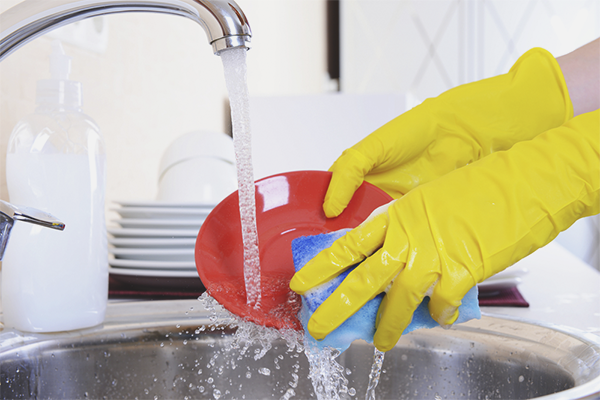
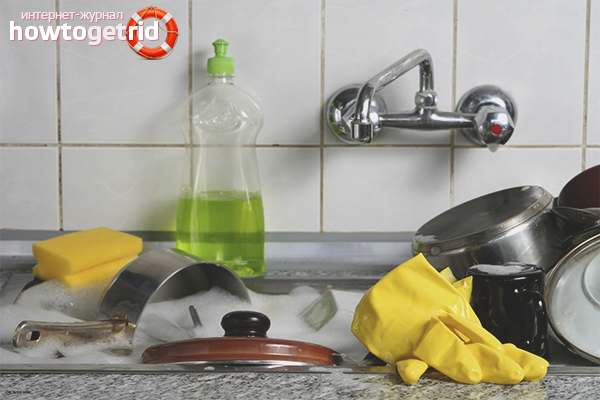
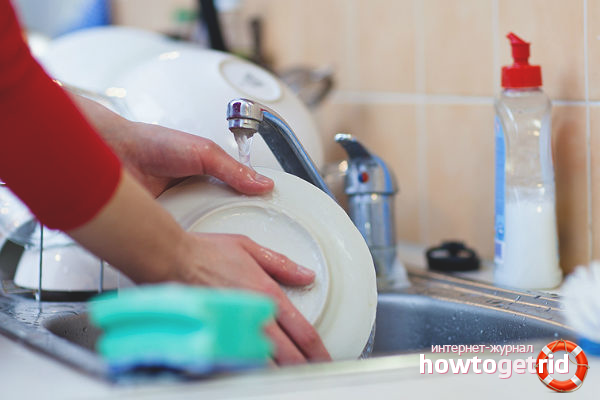

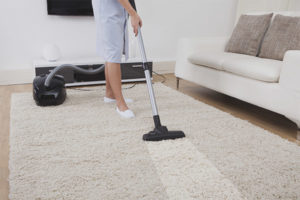
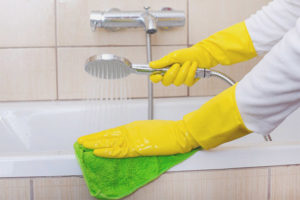
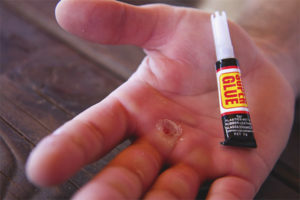
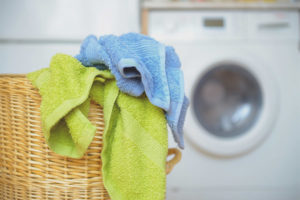
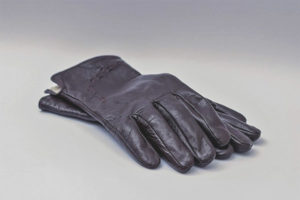

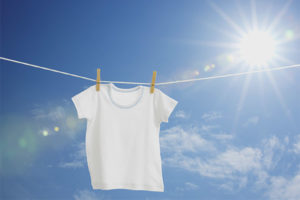
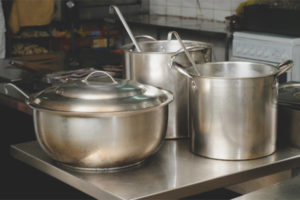
To send